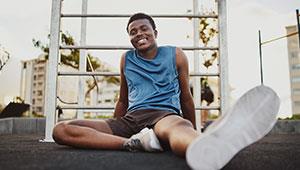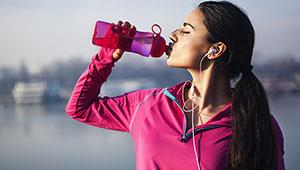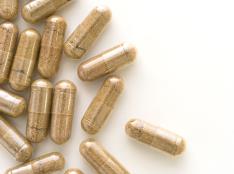As people age, magnesium is less efficiently absorbed from the gut and is excreted more readily by the kidneys. The recommended daily allowance (RDA) for magnesium ranges from an average of 340mg for adult females and 415mg for adult males.
More: What Is Proper Hydration and How It Affects Running Performance
What are the main dietary sources of magnesium? The top five magnesium-rich foods are almonds, spinach, cashews, peanuts and soymilk. The National Institutes of Health provides an extensive list of magnesium-containing foods on their website.
More: Magnesium-Rich Quinoa Recipes
How to Use Magnesium to Your Racing Advantage
Finding sports nutrition products that contain magnesium is no easy task. Over the years numerous manufacturers have added and removed magnesium from their products. The landscape of electrolyte ingredients in nutritional products designed for athletes is ever changing. Do your research. Make sure you are regularly reading the ingredient labels on your favorite supplements.
More: Consume Electrolytes and Calories Separately
One easy strategy to ensure adequate blood levels of magnesium: Choose a sports drink with magnesium and drink 2 to 3 ounces every 15 to 20 minutes during intense activity. For events lasting over 90 minutes, it's wise to supplement with a gel product that contains magnesium approximately once every hour. If your athletic venue is going to be hot, you will lose more magnesium in your sweat, so plan accordingly. Electrolyte capsules and dissolvable tablets that contain magnesium can be crucial for optimal performance in longer races on hot days.
The same advice can be applied during training as well. Magnesium will boost performance during training, thereby making it more effective, and it also aids in recovery. Consider magnesium your new secret weapon in your electrolyte arsenal.
More: 4 Ways to Get Electrolytes After a Workout
 Get more nutrition advice here.
Get more nutrition advice here.
- 2
- of
- 2









Discuss This Article